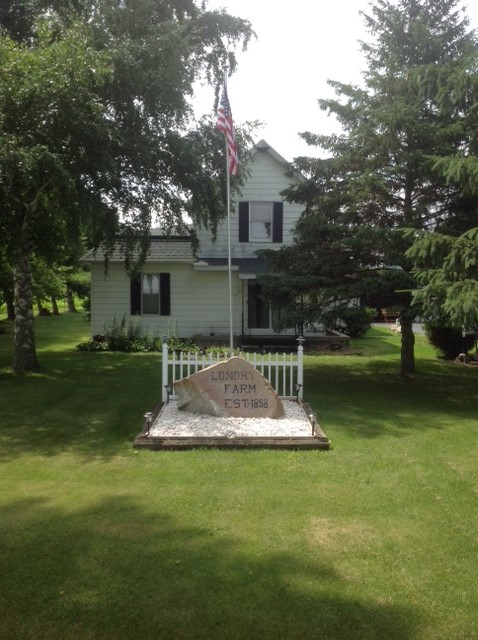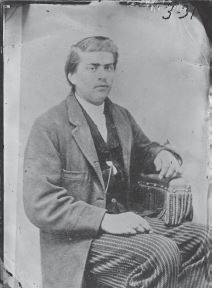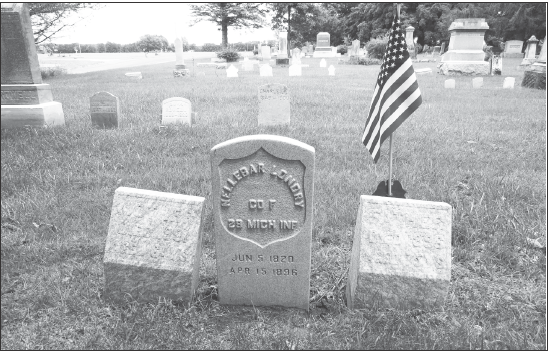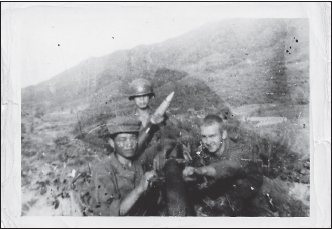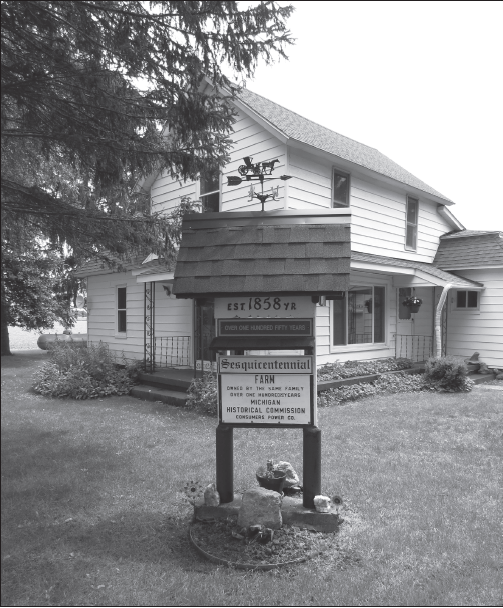Norbert Landry - Nellebar Londry
La famille de Norbert Landry du Québec s'installe dans la vallée de Saginaw au Michigan vers 1850.
| Norbert Landry s'installe sur une ferme avant 1858. Cette ferme est toujours occupé par la famille Landry. Maintenant par Douglas Londry. | Le comté de Gratiot reconnait que la famille de Norbert Landry (Nelbare Londry) est sur cette cette ferme depuis au moins 1858. |
|
|
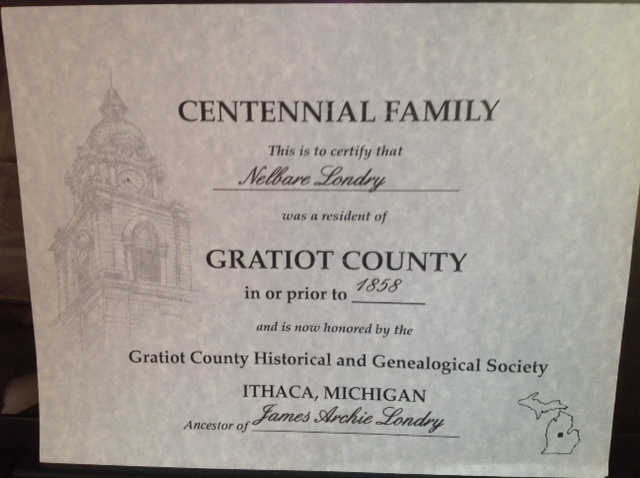 |
| Photo de Norbert Landry sur métal (tintype) vers 1865. |
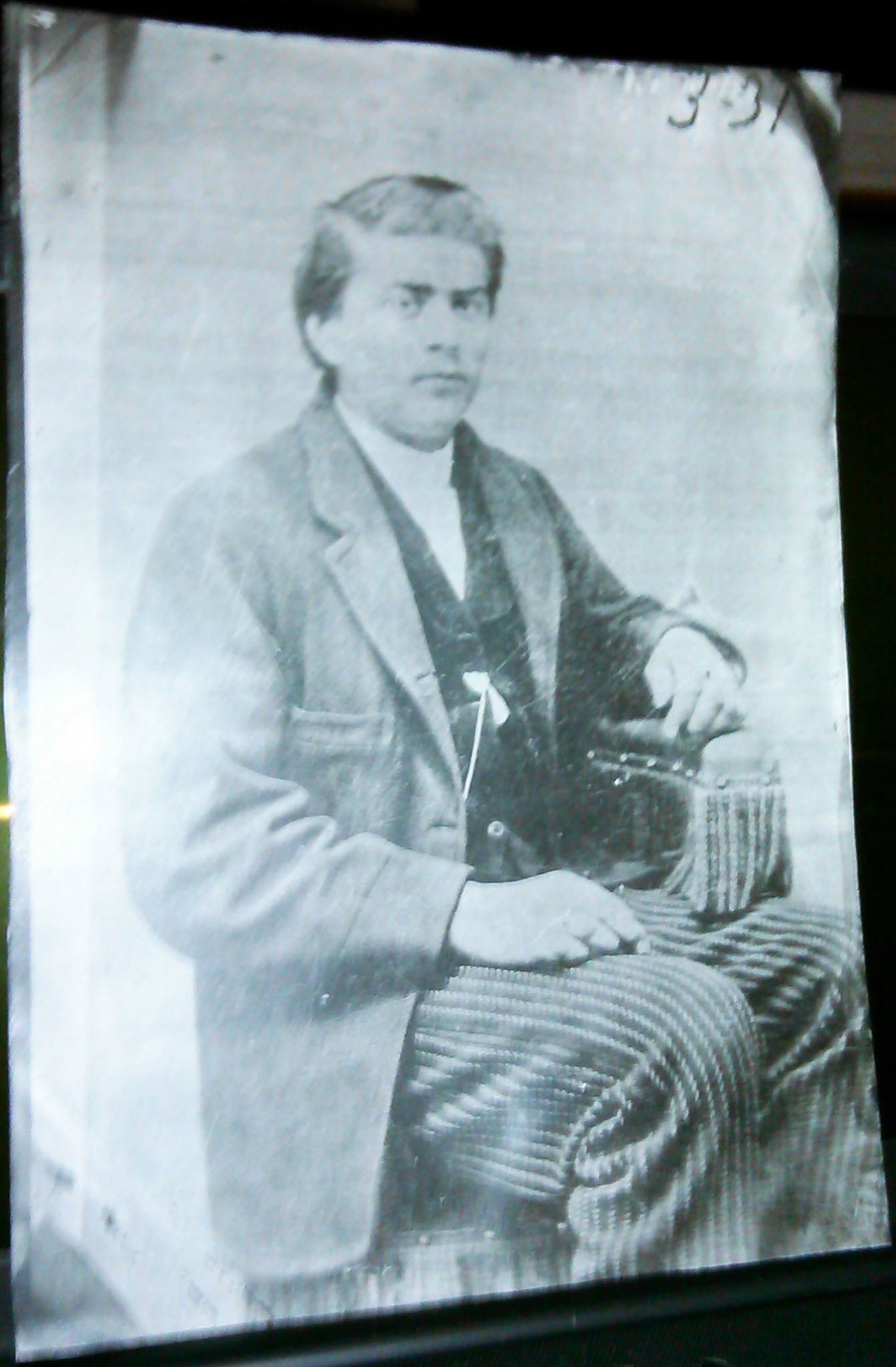 |
| Documents, en 2014 gracieuseté de Douglas Londry de Saginaw au Michigan. |
Article sur Norbert publié le 11 juillet 2019, gracieuseté de Douglas Londry et le Gratiot County Herald du Michigan.
 |
| Thursday, July 11, 2019 Gratiot County Herald - Page 3 |
| Family Historian Leaves No
Stone Unturned Great-Great-Grandson Honors Civil War Vet With Proper Headstone |
|
Civil War vet and early Gratiot County settler Nellebar Londry. (Courtesy of Douglas Londry)
The new Civil War headstone was installed by Londry and members of the Sons of Union Veterans of the Civil War in June. (Herald photo - Selmon)
Londry’s father James, far right, on the battlefield in North Korea in 1951 with South Korean soldiers. (Courtesy of Douglas Londry)
Londry’s house in Lafayette Township, built by his great-grandfather in 1899. (Herald photo - Selmon) |
by Emma Selmon
Nellebar Londry, a Civil War
veteran and early settler of Lafayette Township, now has a headstone
identifying his name and recognizing his service, thanks to the efforts of
his great-great-grandson, Douglas Londry. Londry has kept himself busy as a family historian over the years. Obtaining the headstone from the Sons of Union Veterans of the Civil War (SUVCW) was the last step in the process that he started with his late father, James, 15 years ago. With the help of the SUVCW, Londry was able to fill in some of the blanks in his family history — and leave a lasting memorial to the man who sacrificed so much for his family and his country.
In attempts to help Nellebar
secure his disability pension, several of his neighbors — many of whom are
buried nearby Nellebar — wrote letters to the VA on his behalf. One neighbor, William Easlick,
wrote that Nellebar “has been almost totally disabled from performing manual
labor on account of Rheumatism disease of heart and eyes.” Another, Otto
Schirmer, assured the VA “that [Nellebar] has no vicious habits & that he is
a temperate man.” Despite the kind gestures of his
neighbors, Nellebar died in 1896 without having received any disability “I was told it was when they
ordered the stone, the guy did it wrong,” he said. “Our name was Landry,
but…they just wrote it down like it sounded: Laundry.” Though Nellebar’s grave lacked a
proper marker, his legacy lived on through his children. His son, Londry’s
great-grandfather, built a house on Nellebar’s farm in 1899 that still
stands today. And Londry’s grandfather, Mike, followed in his grandfather’s
military footsteps to enlist in WWI. While parts of Nellebar’s life
had been a mystery, Mike Londry’s When he enlisted in July 1918 at
23 years old, Mike was shipped to Archangel, Russia as a member of the
famous “Polar Bear” unit. Although the WWI fighting officially ended on
Armistice Day — November 11, 1918 — the “Polar Bear” unit found themselves
stranded in the Russian winter, Londry said. They ended up fighting the
Bolsheviks in the Russian Revolution all winter before they were finally
able to leave in the spring, when the waterways thawed. After returning from the war,
Mike Londry had four sons, all of whom were involved in the military.
Londry’s uncle Bill enlisted in the Navy in 1942, where he was stationed in
Hawaii to help rebuild Pearl Harbor. His uncle Thomas served on the Patrol
Torpedo (PT) boats in the Pacific alongside future president John F.
Kennedy. Londry’s father James was drafted
into the army in 1950 and and was sent to North Korea, where he fought with
the 7th Calvary, “right during the heavy fighting when the Chinese were
there,” Londry said. And Londry’s youngest uncle Lester joined the navy in
1955. From the Civil War to Korea and
through all of the “hardships” they experienced, each of Londry’s family
members made it back home. And through it all, the homestead that Nellebar
founded remained. Today, Londry lives where he grew
up —on the farm his great-great-grandfather cleared, in the house that his
great-grandfather built, and nearby Lafayette Cemetery where much of his
family is buried. Londry is the fifth generation to live on the farm, and
should his son and granddaughter chose to live there someday, they would be
the sixth and seventh generations. Londry is “proud” to have
finished what he and his father started, |
Source: gcherald.com/pdf/7-11-19.pdf 15 jul 2019
Dernière modification : samedi 08 novembre 2025
